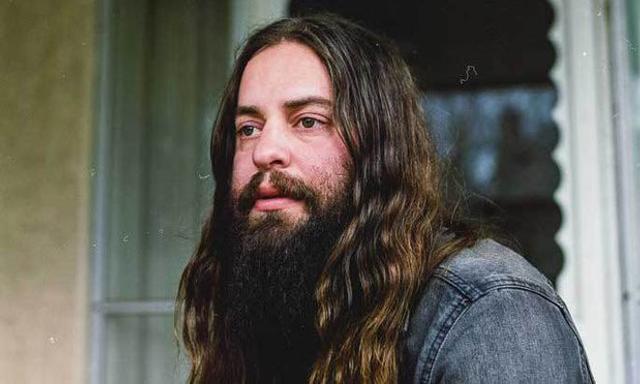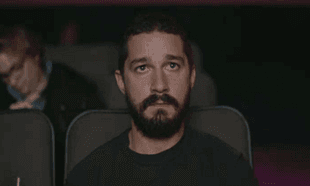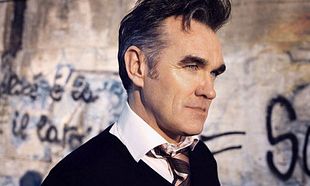Strand of Oaks recently released one of the most brutally honest rock albums of 2014. The brainchild of Tim Showalter, HEAL is an unflinchingly raw examination of the songwriter’s own faults and failings, a brave attempt to confront the demons that were sending him on a dangerous downward spiral. But HEAL is not some empty exercise in navel-gazing; it is a bold and bracing rock album that betrays Showalter’s love of the music he listened to growing up as a kid in Indiana.
We caught up with the fascinating and engaging Showalter ahead of his Dublin show in Whelan’s on 3rd October.
Thanks for taking the time to talk to entertainment.ie Tim – for those who might not be familiar with your music, tell us a little about Strand of Oaks and how you got to the point of making your latest album HEAL?
Great to talk with you. Well, I've been making music most of my life but Strand of Oaks has existed for about ten years. I've made four record prior to HEAL. I can't really function without making music so obviously I love making records, but HEAL means something much more to me. It feels like my debut in a way. It took me ten years to find the courage and confidence of finally make the record I wanted to. In the simplest of terms I had to lose myself to find myself. When you accept the darkest and most honest points of your life there is little to be afraid of anymore. I went through a pretty rough time leading up to writing HEAL and because of that I was able to approach writing and record without any hesitations.
Growing up in Indiana, which bands or musicians turned you on to music for the first time and how much of that music continues to influence what you do to this day?
So many bands and records help define me. Looking back I was slightly too young to fully experience the grunge movement but I was still heavily influence by the rawness of that time. One record in particular was Jeff Buckley's Grace. It struck me so much deeper than other records, it was the first record to truly feel important to me. My relationship with music has and always will be essential. I'm constantly listening to and collecting records. I understand the language of music and am constantly inspired by it. We would probably need a whole other interview to talk about all the bands I'm digging these days.
J Mascis of Dinosaur Jnr plays guitar on the opening track of your album – how did that collaboration come about?
Getting J to play was pure magic. I recorded Goshen '97 and my label suggested that J should shred on it. Within 24 hours of talking he had recorded the track. It’s very surreal to listen to that song and realize that my hero is playing guitar right along with me.
The opening track of Heal: Goshen ’97 – on the surface, it seems like a nostalgic look back at the days of your youth but then there is the repeated line ‘I don’t want to start over again..’ Tell us a little about that song.
I think that song took about fifteen minutes to write. I didn't think about anything. Just pounded out my favourite chords on the guitar and wrote exactly what I was feeling. The song is really a celebration of getting through those awkward teenage years and making it out alive.
HEAL is an intensely personal album – there is no attempts to cloak anything in metaphor. It is direct and blunt and pulls no punches. Was there a sense that you had come to a point where this album had to be made for you to be able to move on from some of the things that are documented on the record?
GREAT question! You actually answered it for me. I'm 32 now and I was tired of repeating myself. Both in my musical life and personal life. They are so intertwined that eventually I was either going to give up on both or be completely honest. In order of my survival I need to write HEAL. It provided me a gateway into my own recovery.
The song ‘Mirage Years’ confronts your wife’s infidelity in such a stark way – did you have to think long and hard about laying that bare, given that you are both still together, and it is obviously still very raw?
This was the hardest song to write on the record. I love my wife with all my heart. Marriage and all relationships are very complex. There are no heroes or villains, we both are just trying to live our lives and figure out this life. Infidelity can be such a broad term. I truly believe my lack of presence in the relationship was just as bad as anything she did to me. You hurt the people you love the most. When you love a person to such a level, you allow yourself to be vulnerable. When you're vulnerable you are setting yourself up for both joy and pain. But the experience of loving someone and being loved back is worth that risk.
Do you think the lifestyle that musician’s lead, with the constant touring and recording puts a huge strain on personal relationships?
Absolutely! But I also feel like I am naturally a hard person to live with. I'm definitely not a subtle person and I experience emotions severely. In some ways that's what leads me to create the records that I do but it also makes it for a very difficult domestic life. My wife has to experience me when I'm not on stage or in the studio. She has to live with my wild mood swings of both heavy joy and intense depression. Most would not have stuck it out but she did.
There are lyrics on the album where you openly admit to your own faults and failings – it is one thing to confront our demons but a whole other thing to be able to recognise our own part in creating them. Do you think that is an essential part in healing?
Beautiful question, inspiring actually. That's why I love doing interviews, I believe that writers are able to filter a musicians words into a completely new analytical view that I might not have considered. I totally agree with you. Too many times in my life do I look for an escape from my problems and reasons why everything is going wrong. It’s horrifying to finally realize that most my problems can be traced back to me. Situations can be out of your control obviously, but many of personal problems are almost always caused by my own doings. Even if I'm the victim of outside circumstances it’s still up to me to turn that into something productive. It’s far easy to let yourself be overtaken by problems instead of grow from them.
You were involved in a pretty serious car crash last year – was that a life changing experience in any way or was it something you got over pretty quickly?
It was very serious. So much so that I feel very luck to be talking with you now. I walked through this life often thinking that I was immortal. Not thinking I could live forever but rather not being aware that this life could end. When you are faced with your own mortality you quickly assess what your life means. On top of that I had a lot of injuries that I needed to heal from that humbled me physically. If I learned anything from the accident it’s that life is too short to compromise your vision and who are. I'm not going to let doubts or insecurities overtake my purpose anymore.
I get the impression from listening to your records that making music is everything to you –there is no fallback option. Do you ever think about that, what you would be doing if you weren’t a musician?
It’s interesting because I had a whole career before music. I was a grade school teacher for many years. I loved working with children. Such tangible results could be seen every day and that was very fulfilling. But at the moment music is what defines me. So much so I probably need to find a hobby. I have some experience in woodworking and carpentry and would love to pursue that more if I ever get the time.
The internet has completely changed how music is accessed and distributed – do you think it is easier or harder for musicians to make a living now than it was for the bands you listened to growing up?
I believe art is meant to be experienced. I hate the idea of exclusivity. I grew up in a part of the world that it took a lot of effort to find music. The act of discovery was beautiful but still frustrating. I'm happy that if anybody wants to hear my album they can. With that said I still need to make some money in order to keep making music. I don't like it when bands use the internet as the reason why they're not making money. They just need to re-evaluate why they are making music. If they want to make it their career then you better be prepared to sacrifice everything and make the best art you can. Cream rises to the top in most situations.
I read somewhere you are a fan of U2 – what was your take on the hoopla that surrounded their recently released album?
I'm not online much, probably because of things like this. U2 are legends. They can do whatever the hell they want. It’s funny they are so big that they are getting more press than most bands by how they chose to release their record. I feel fortunate to live in a world where those four men still want to make music together. They've worked their whole career to inspire and uplift people and little things like this means nothing to them as a whole.
And finally, you play Whelan's in Dublin on 3rd October – is this your first time to play over here?
Actually I came to Ireland about ten years ago with Kimya Dawson. Our band had just started and we had no idea what we were doing. I've wanted to return ever since. I was so happy to see a Dublin date on this tour, I only wish we had more Irish dates though. I have no doubt it will be a highlight of tour. We are gonna give everything to the show!
Thanks for taking the time to talk to us Tim and good luck with the album and the show.
Strand of Oaks play Whelan’s on 3 October – tickets available from the usual outlets.









































































